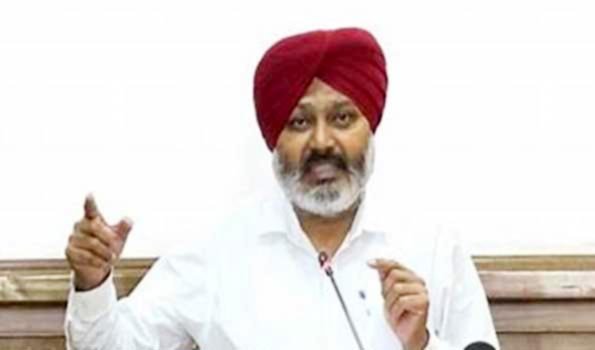Islamabad, (UNI) The Supreme Court on Friday ordered the government to ensure the conduct of general elections on February 8, a day after President Arif Alvi and Chief Election Commissioner Sikandar Sultan Raja unanimously agreed on the aforementioned date during a meeting held at the President’s House.
The court’s orders came during the hearing of multiple pleas seeking timely elections within 90 days of the dissolution of the assemblies, Geo news reports.
A three-member bench headed by CJP Isa and comprising Justice Athar Minallah and Justice Amin-Ud-Din Khan heard the case.
The court, in its order, mentioned that the notification of the general election date has also been issued by the Election Commission of Pakistan (ECP), stating that no party has any objection to holding elections on February 8.
Chief Justice of Pakistan Qazi Faez Isa asked everyone in the courtroom as well as the Attorney-General for Pakistan, Mansoor Usman Awan, if they had any objection to the election date, but all replied in the negative.
“After all the requirements are fulfilled, the Election Commission should announce the election schedule,” CJP Isa said.
The chief justice said: “Elections will definitely be held on February 8, God willing.”
After dictating the order, the chief justice said the media would be guilty of violating the Constitution if it created doubts about the elections.
CJP Isa said he hoped elections would be peaceful without parties insulting their opponents and disposed of the petitions.
Earlier, the AGP told the court that the president had given the date following his meeting with CEC Raja and a notification in this regard has also been issued.
“If everyone is happy, then we have no objection. The Election Commission and all the parties have agreed,” the chief justice said, adding that all the members unanimously agreed to the date but did not refer to any constitutional provision.
In the order, the chief justice also inserted Article 48 Clause 5 and Section 57 (1) of the Election Act.
The Supreme Court mentioned that the ECP did not respond to the president’s letter, according to media reports.
“Every institution including the ECP and the president is bound to implement the Constitution. There are severe consequences for not following the Constitution,” the order read.
The court said that the issue of elections was to be resolved between the president and the ECP, which was unnecessarily brought to the Supreme Court.











